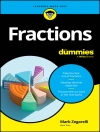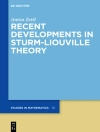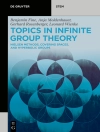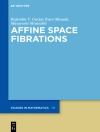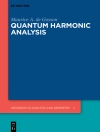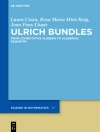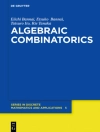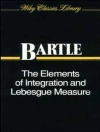This contributed volume investigates several mathematical techniques for the modeling and simulation of viral pandemics, with a special focus on COVID-19. Modeling a pandemic requires an interdisciplinary approach with other fields such as epidemiology, virology, immunology, and biology in general. Spatial dynamics and interactions are also important features to be considered, and a multiscale framework is needed at the level of individuals and the level of virus particles and the immune system. Chapters in this volume address these items, as well as offer perspectives for the future.
Daftar Isi
Modeling, Simulations and Social Impact of Evolutionary Virus Pandemics (Bellomo).- Understanding COVID-19 epidemics: a multi-scale modeling approach (Knopoff).- Kinetic modelling of epidemic dynamics: social contacts, control with uncertain data, and multiscale spatial dynamics (Pareschi).- The COVID-19 pandemic evolution in Hawai and New Jersey: a lesson on infection transmissibility and the role of human behavior (Piccoli).- A Novel Point Process Model for COVID-19: Multivariate Recursive Hawkes Process (Bertozzi).- Multiscale aspects of virus dynamics (Flandoli).- Productivity in times of Covid-19: an agent-based model approach (Fontanari).- Transmission Dynamics and Quarantine Control of COVID-19 in Cluster Community (Gao).- A 2D kinetic model for crowd dynamics with disease contagion (Quaini).- Multiscale derivation of a time-dependent SEIRD reaction-diffusion system for COVID-19 (Zagour).
Tentang Penulis
Nicola Bellomo is Distinguished Professor at the University of Granada and professor emeritus at the Polytechnic University of Torino. He started his research activity with studies on the mathematical theory of the Boltzmann equation and of stochastic differential equations. Subsequently, he moved his scientific interests to the study of living systems becoming one of the pioneers of the development of active particles methods to the modeling of large systems of self-propelled interacting entities, specifically multicellular systems, crowds and swarms. He is editor in Chief of Journals: “Mathematical Models and Methods in Applied Sciences” (with Franco Brezzi).
Mark A. J. Chaplain holds The Gregory Chair of Applied Mathematics at the University of St Andrews. He started his research activities during his Ph D developing various reaction-diffusion-type partial differential equation models for the growth of avascular solid tumours. Since then modelling cancer growth and treatment has remained his main research interest. Much of his more recent research focus has been on developing novel multiscale models of cancer growth, by incorporating effects at different spatial and temporal scales into a single model (e.g. intracellular, cellular and tissues scales). He is one of the co-Chief Editors of the “Journal of Theoretical Biology” (with Denise Kirschner and Akira Sasaki) and is the Mathematics Section Editor for the “Royal Society Open Science” journal.


